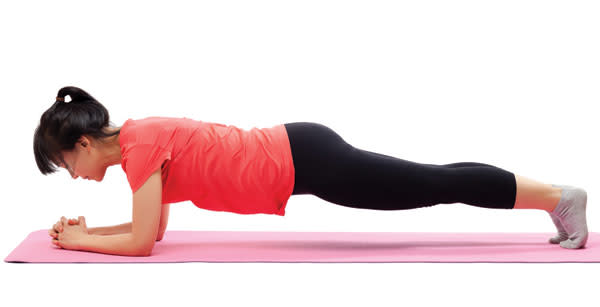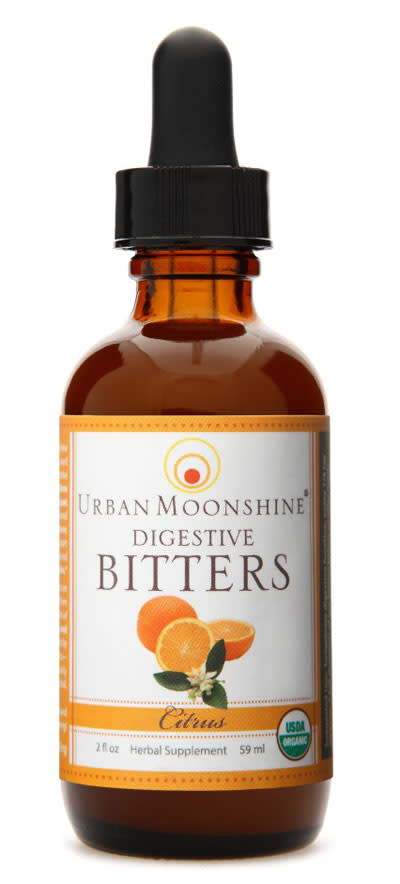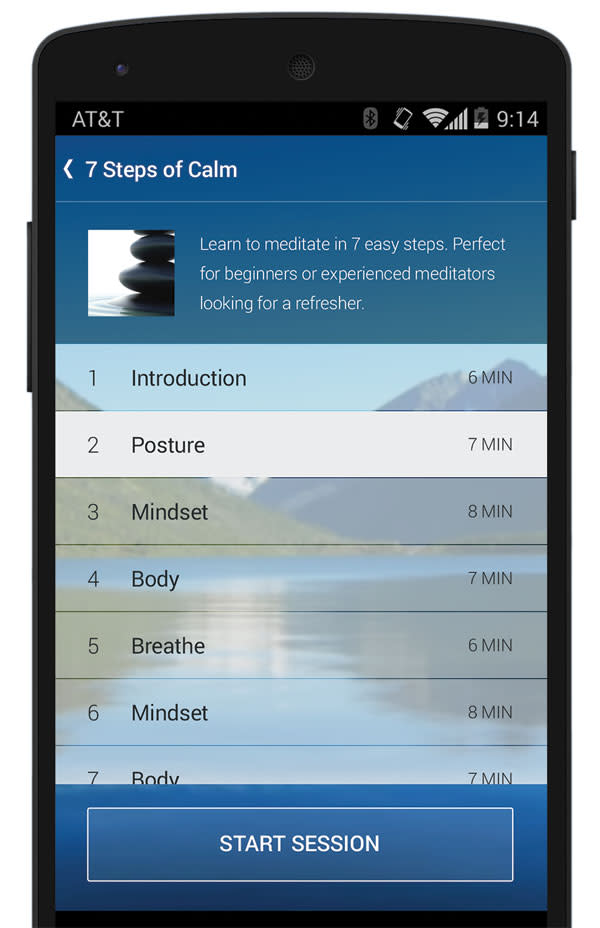Why You Should Plank More, and More Sarasota Health News

Plank Power
An all-around effective exercise move.
“The plank is one of the best exercises for your core, back and upper body muscles, as well as the muscles around the pelvis,” says Michele Rose, owner of the new BeFitSRQ in downtown Sarasota. And you don’t have to plank for long to reap those benefits—even just 10 to 15 seconds at a time can improve the tone and strength of those muscle groups. More advanced plankers can aim for 30 seconds or a minute. (Sounds short, but trust us: It’s a challenge.) Aim for between four and six holds a session.
But bear in mind, says Rose, “Form is very important.” Here are her tips for a proper plank.
Start on your hands and knees. Face down; hands should be directly below your shoulders.
Extend your legs and lift up on your toes.
Engage your stomach muscles.
Do not let your shoulders or hips sag.
Focus on your breathing.
For more of a challenge, you can lift one leg and hold it, then lift the other.
Once you start to feel it, drop back to your knees.
Stretch in a yoga child’s pose.

The Benefits of Bitters
Bitters, those concoctions you probably associate with revived craft cocktails, also serve a digestive purpose. The flavor stimulates saliva production in your mouth and also triggers the production of gastrin, a hormone that tells your stomach to produce gastric acid. More acid in your stomach when you start eating means your food breaks down more fully, which enables your body to absorb more nutrients.
“I recommend them before any meals you know will cause stomach discomfort—Thanksgiving, spicy foods, fried foods, rich meals,” says Nicole Leffler, who owns Sarasota’s Wild Ginger Apothecary. “And [keep] them on hand to use after meals for surprise stomach issues like gas, bloating [and] heartburn. Many customers use bitters first thing in the morning as a ‘rise-and-shine’ morning ritual to start their day. Try adding to hot or cold water, with a splash of raw apple cider vinegar and half a lemon juiced.”
Leffler also shared the recipe for a beverage to serve your guests 20 minutes before the meal in order to get those juices flowing. Ginger, like bitters, has similar digestive benefits, and evidence suggests it helps with upset stomach, too.
1 teaspoon Urban Moonshine citrus bitters
1 ounce organic ginger beer
Splash of grapefruit juice
Cranberry garnish
Aging and Depression
It’s bad enough to be depressed, but new evidence is showing that depression in senior citizens can actually cause or worsen other serious physical issues. Unfortunately, the stigma associated with mental challenges, especially among the elderly, can be a barrier to seeking treatment. Yet Jessica Miller, manager of the dementia unit at Pines of Sarasota, says a visit to the doctor can often help seniors overcome depression. “Your primary care doctor is a good place to start,” she says.
We asked Miller to tell us about what else you can do to help yourself or a loved one recover.
Rule No. 1: Take Depression Seriously.
Depression exacerbates existing ailments, inhibits rehabilitation from trauma or surgery, and can even cause heart disease and other potentially fatal conditions. Coping mechanisms like alcohol only add to the risks. Suicide, too, is a major concern. “It really can cause untimely death,” says Miller.
Rule No. 2: Take Action. This is Not a Phase.
“When you start exhibiting these symptoms—losing sleep, not eating enough, being irritable, unable to concentrate—this is on a different level than just stress,” says Miller. “It will not get better on its own.” Caregivers should be empathetic and supportive, but it’s important to seek outside help.
Rule No. 3: Take Heart. You Can Recover.
There are currently 12 Pines residents over the age of 100, each of them active and engaged. “Depression does not go hand-in-hand with aging,” stresses Miller. “You don’t have to suffer. You can feel better.”
Depression Risk Factors
Declining health
Advancing age
Loss of support or social contacts
Death of spouse or loved one
Women are at a greater risk
Chronic and/or severe pain
History of depression
Medical diagnoses like stroke, hypertension, diabetes, heart surgeries
Symptoms: Be on the lookout for…
Changes in mood or behavior
The onset of a chronic, attention-seeking complaint
Withdrawal from activities or family members
Insomnia
Not getting dressed or showered on a regular basis
Irritability
Loss of energy
Inability to make decisions
Excessive sleep
Not following through on medical directions
Treatments
Talk therapy: Especially helpful after the death of a loved one; sometimes all that’s needed is a neutral outlet to help process emotions in a healthy manner.
Lifestyle adjustments: Under the guidance of a physician, improvements in diet and exercise can be a part of the solution.
Medical attention: Addresses physical causes like stroke or heart disease.
Medication: Gets to the root of disturbances and abnormalities in brain chemistry.

Guided Meditation? There’s an app for that.
Phones get a bad rap for contributing to our hectic lives, but they can help combat stress, too. Consider Calm, an app that combines soothing scenes, sounds and instructions for guided meditation. (Check it out online at calm.com.) Choose from a variety of natural settings, which the app presents both visually and audibly, from sitting still by a mountain lake to soaring over clouds. Then select a length of time, from two to 20 minutes. A soothing voice gives instructions, with quiet pauses in between, to close your eyes and focus on breathing and body position. Even a two-minute midday refresh can make a significant difference in mindset and stress level. It’s a good reminder, as the voice says, that “This is you, alive and present.”



